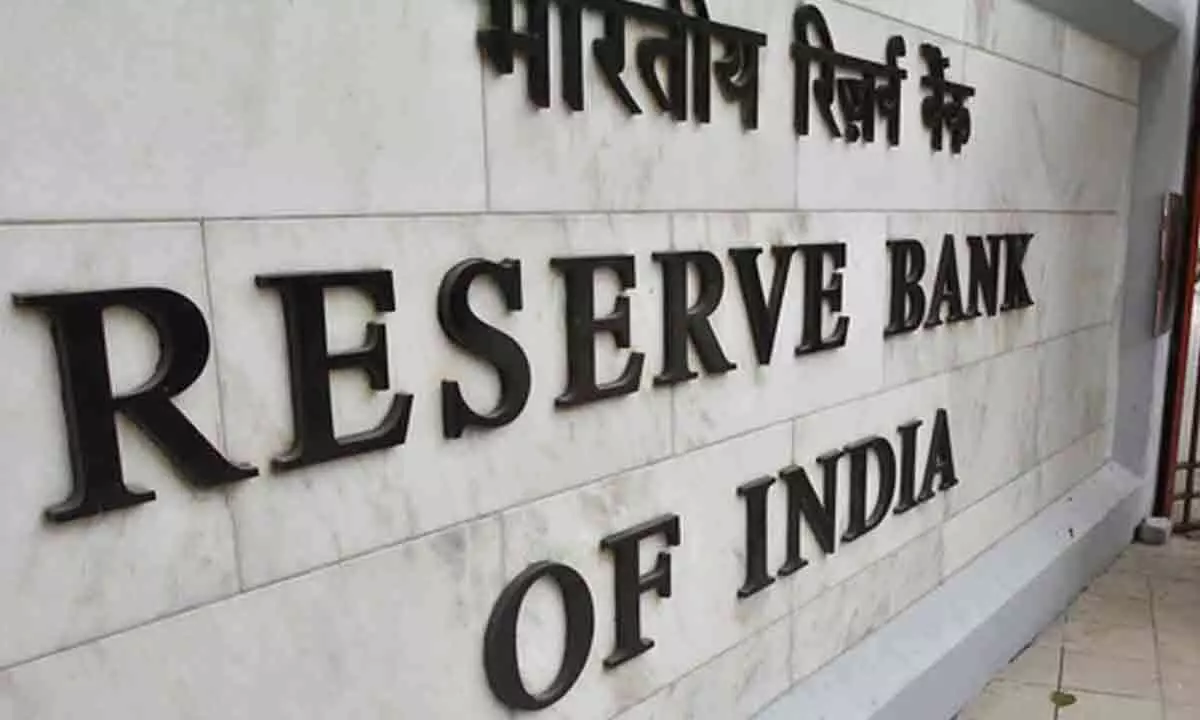Live
- Gentle in manner, resolute in convictions: Sonia Gandhi pens emotional note for Dr. Manmohan Singh
- 2024: A landmark year for India's defence achievements and breakthroughs
- 2025 Horoscopes: Insights and Guidance by Pt. Umesh Chandra Pant
- Osamu Suzuki was a legendary figure in global auto industry: PM Modi
- “AMOEBA”: Celebrating the Journey of Telugu Entrepreneur Sri Motaparti Siva Rama Vara Prasad
- Sachin Khedekar recites a poem from director Feroz Abbas Khan’s powerful new play, ‘Hind 1957’
- NABL-QCI appoints Dr. Sandip Shah as chairperson
- Centre transfers Rs 2.23 lakh crore for 1,206 schemes under Direct Benefit Transfer
- BGT 2024-25: Watching Konstas bat reminds me of Symonds, says Hayden
- 75 iconic lighthouses in India saw more than 10 lakh visitors till September
Just In
RBI bulletin pegs India’s GDP growth in Q4 at 7%, corporate investments likely to surge

The RBI’s monthly bulletin released on Tuesday expects a fresh round of capital expenditure by the corporate sector to fuel the next leg of growth in the Indian economy and has pegged the GDP growth rate at 7 per cent for the fourth quarter of the current financial year ending on March 31, 2024.
Mumbai: The RBI’s monthly bulletin released on Tuesday expects a fresh round of capital expenditure by the corporate sector to fuel the next leg of growth in the Indian economy and has pegged the GDP growth rate at 7 per cent for the fourth quarter of the current financial year ending on March 31, 2024.
“The Indian economy continues to sustain the momentum achieved in the first half of 2023-24, going by high frequency indicators,” the bulletin states.
Consumer confidence strengthened further in January 2024, driven especially by optimism about the general economic situation and employment conditions, as per the RBI’s latest survey of households.
“Various enterprise surveys also point towards strong business optimism,” the RBI bulletin points out.
It also states that high frequency indicators point towards sustained strength in demand conditions in the economy during January 2024. E-way bills grew by 13.2 per cent in December 2023. Toll collections expanded by 15.5 per cent year-on-year in January 2024, although they sequentially moderated from a record in the previous month.
Automobile sales had registered an expansion of 23.3 per cent year-on-year in January with two wheeler sales recording double digit growth. Retail tractor sales recorded a seven-month high growth at 21.2 per cent year-on-year in January 2024. Vehicle registrations recorded strong year-on-year growth.
As far as the agriculture sector is concerned the rabi crop acreage during 2023-24 stood at 709.3 lakh hectares a tad higher than the sown area last year and 5.2 per cent higher than the normal acreage. Area under all major crops, except rice and pulses, remained higher on a y-o-y basis. Area sown under wheat, which accounted for 47 per cent of rabi full season normal area, increased by 0.7 per cent y-o-y, the bulletin states.
On the downside the bulletin observes that the disruption in global trade flows and higher transportation costs due to the ongoing Red Sea conflict has led to the build-up of supply chain pressures in recent months.
However, it also states that the likelihood of the global economy exhibiting stronger than expected growth in 2024 has brightened in recent months, with risks broadly balanced.
The RBI bulletin is upbeat on consumer price inflation coming off its November-December spikes in its January 2024 reading, while core inflation is at its lowest since October 2019.
It points out that a stable and low inflation at 4 per cent provides the bedrock for sustaining economic growth. CPI inflation was projected at 4.5 per cent for the year 2024-25.
Although, lower by 90 basis points than the estimated average for 2023-24, the MPC noted with concern that large and repetitive food price shocks are impeding the disinflation engendered by the steady easing of core inflation, with geopolitical events and their impact on supply chains, and volatility in international financial markets and commodity prices posing upside risks.
The MPC decided that monetary policy must remain disinflationary to ensure anchoring of inflation expectations and the progressive alignment of inflation outcomes with the target, while supporting growth, the RBI bulletin added.

© 2024 Hyderabad Media House Limited/The Hans India. All rights reserved. Powered by hocalwire.com






